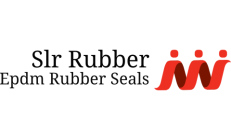Industrial seals are essential components in various mechanical systems, playing a pivotal role in preventing the leakage of fluids, contaminants, or even the escape of pressure.
Industrial seals are essential components in various mechanical systems, playing a pivotal role in preventing the leakage of fluids, contaminants, or even the escape of pressure. These seals are designed to ensure the efficient and reliable operation of machinery in industrial settings, where robust performance and durability are paramount.
Typically fabricated from high-quality materials such as rubber, metal, or a combination of both, industrial seals are engineered to withstand harsh environmental conditions, extreme temperatures, and corrosive substances. The selection of materials is often tailored to the specific demands of the application, ensuring compatibility with the substances being sealed and the operating conditions.
One of the primary functions of industrial seals is to create a barrier between different components of a system, effectively containing liquids or gases within their designated areas. This containment not only prevents leaks but also helps maintain optimal performance and efficiency over extended periods. The design and construction of industrial seals take into consideration factors such as pressure differentials, temperature fluctuations, and mechanical wear to ensure long-term reliability.
In addition to their sealing function, industrial seals are also instrumental in minimizing friction and wear between moving parts. This is particularly crucial in rotating machinery, where seals contribute to the overall efficiency by reducing energy losses and extending the lifespan of critical components.
The manufacturing processes for industrial seals have evolved to meet the diverse needs of various industries. Precision engineering techniques, such as molding, extrusion, or machining, are employed to create seals with precise dimensions and tolerances. Advanced technologies, including computer-aided design (CAD) and finite element analysis (FEA), are often utilized in the development of custom seals tailored to specific applications.
Industrial seals find applications in a wide range of industries, including automotive, aerospace, oil and gas, chemical processing, pharmaceuticals, and manufacturing. They are employed in pumps, valves, compressors, hydraulic systems, and other critical equipment where maintaining a reliable and leak-free operation is imperative.
Regular maintenance and inspection of industrial seals are essential to ensure optimal performance and prevent unexpected failures. In cases where seals are exposed to aggressive chemicals, extreme temperatures, or high pressures, selecting the right type of seal and implementing proper maintenance procedures become crucial for the overall integrity of the system.
In conclusion, industrial seals are indispensable components that contribute significantly to the efficiency, safety, and longevity of machinery in diverse industrial applications. Their role in preventing leaks, reducing friction, and ensuring the smooth operation of equipment makes them vital elements in the complex and dynamic landscape of industrial engineering.

